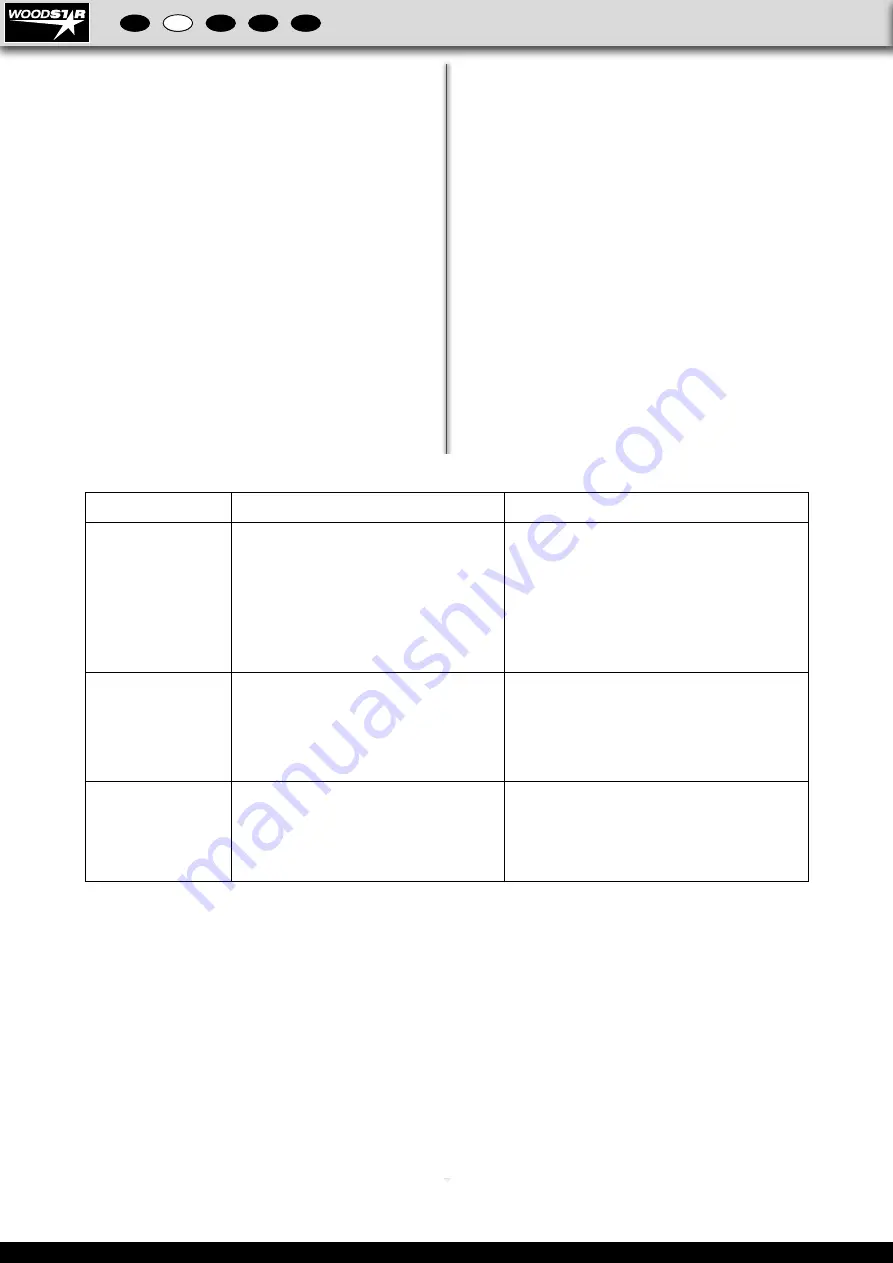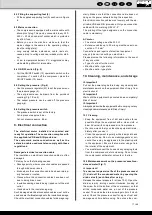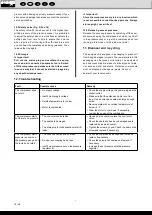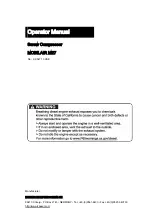
18 І 48
DE
GB
FR
PT
m
Important!
Store the compressor only in a dry location which
is not accessible to unauthorized persons. Always
store upright, never tilted!
10.5 Releasing excess pressure
Release the excess pressure by switching off the com-
pressor and using the compressed air which is still left
in the pressure vessel, e.g. with a compressed air tool
running in idle mode or with a blow-out pistol.
11. Disposal and recycling
The equipment is supplied in packaging to prevent it
from being damaged in transit. The raw materials in this
packaging can be reused or recycled. The equipment
and its accessories are made of various types of mate-
rial, such as metal and plastic. Defective components
must be disposed of as special waste. Ask your
dealer or your local council.
pressor with a damaged or rusty pressure vessel. If you
discover any damage, then please contact the customer
service workshop.
10.3 Safety valve (Fig. 2/Pos. 14)
The safety valve (14) has been set for the highest per
-
mitted pressure of the pressure vessel. It is prohibited
to adjust the safety valve or remove its seal. Actuate the
safety valve from time to time to ensure that it works
when required. Pull the ring with suffi cient force until
you can hear the compressed air being released. Then
release the ring again.
10.4 Storage
m
Important!
Pull out the mains plug and ventilate the equip-
ment and all connected pneumatic tools. Switch
off the compressor and make sure that it is secured
in such a way that it cannot be started up again by
any unauthorized person.
12. Troubleshooting
Fault
Possible cause
Remedy
The compressor does
not start.
• No supply voltage.
•
Insuffi cient supply voltage.
• Outside temperature is too low.
• Motor is overheated.
• Check the supply voltage, the power plug and the
socket-outlet.
• Make sure that the extension cable is not too
long. Use an extension cable with large enough
wires.
• Never operate with an outside temperature of
below +5° C.
• Allow the motor to cool down. If necessary,
remedy the cause of the overheating.
The compressor starts
but there is no pressure.
• The non-return valve leaks.
• The seals are damaged.
• The drain plug for condensation water (9)
leaks.
• Have a service center replace the non-return
valve.
• Check the seals and have any damaged seals
replaced by a service center.
• Tighten the screw by hand. Check the seal on the
screw and replace if necessary.
The compressor starts,
pressure is shown on
the pressure gauge, but
the tools do not start.
• The hose connections have a leak.
• A quick-lock coupling has a leak.
•
Insuffi cient pressure set on the pressure
regulator (3).
• Check the compressed air hose and tools and
replace if necessary.
• Check the quick-lock coupling and replace if
necessary.
• Increase the set pressure with the pressure
regulator.
GB
ES
















































